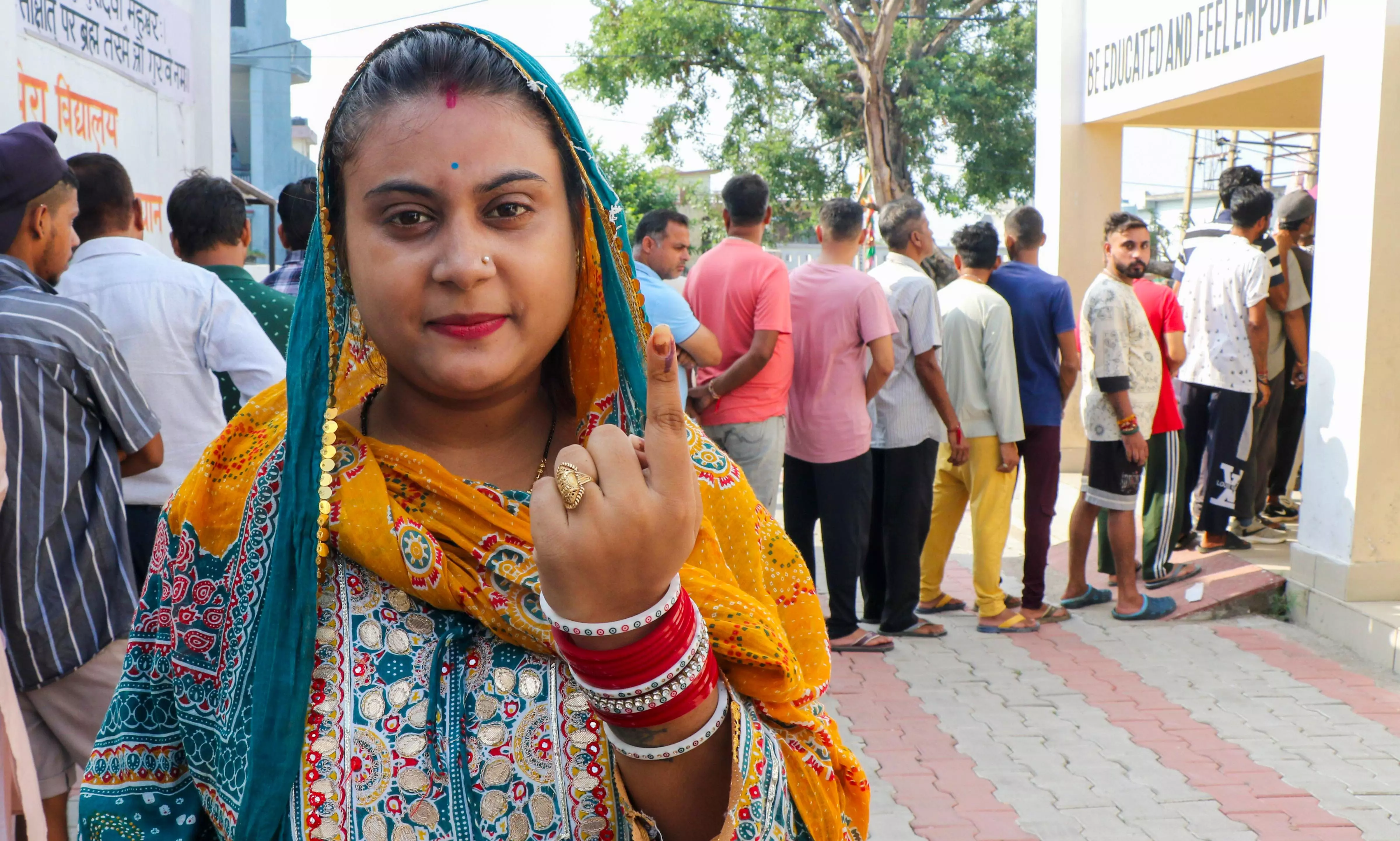
BJP’s obsession with One Nation, One Election: Implications for democracy
Smaller, state-based political outfits fear losing relevance amid dominance of national parties, as voters might prioritise national issues over state-specific concerns

The Bharatiya Janata Party’s (BJP) push for simultaneous elections — termed ‘One Nation, One Election’ (ONOE) — has sparked heated debates across political and public domains. While proponents argue this measure will streamline governance and cut costs, critics caution against its potential to undermine India’s federal structure and democratic diversity.
In a recent episode of 'Talking Sense with Srini', The Federal's Editor-in-Chief S Srinivasan spoke about why ONOE is considered anti-federal, and how it may overshadow regional issues and politics.
Cost of the exercise
The financial argument for ONOE hinges on the alleged reduction in election costs. However, the logistical requirements are staggering. Organising simultaneous polls for Parliament and State Assemblies would necessitate over 50 million electronic voting machines (EVMs), each costing approximately ₹17,700. When factoring in Voter Verifiable Paper Audit Trail (VVPAT) systems and other administrative expenses, the exercise could surpass ₹100,000 crore.
Experts argue that these one-time costs may not offset the broader expenses incurred by political parties during campaigns. BJP alone reportedly spent ₹10,500 crore in the last general election, with ₹6,000 crore originating from anonymous electoral bonds — a contentious issue in itself.
Also read: One Nation One Election | State govts, regional parties apprehensive: Ex-CEC Krishnamurthy
Challenges to regional representation and federalism
The initiative has been criticised for its potential to diminish the voice of regional parties. Smaller, state-based political outfits fear losing relevance amid the dominance of national parties in simultaneous elections, as voters might prioritise national issues over state-specific concerns.
Adding to the controversy is the linguistic exclusivity of the consultation process. The questionnaire for stakeholders was made available only in Hindi and English, alienating non-Hindi-speaking regions. In states like Tamil Nadu, where linguistic identity plays a pivotal role, this oversight has fueled accusations of bias and an anti-federal approach.
Historical precedents
The idea of simultaneous elections isn’t new. From 1952 to 1967, India held synchronised polls for the Lok Sabha and State Assemblies. However, political upheavals — including the dismissal of state governments and reorganisation of states — disrupted this system.
Subsequent recommendations by the Law Commission and political leaders like Atal Bihari Vajpayee and LK Advani kept the idea alive, but none advocated for immediate implementation. The BJP’s current push marks a significant escalation in its commitment to the proposal.
Also read: One Nation, One Election | Why govt move to introduce it in Parliament is more about optics
Why is BJP interested?
For the BJP, ‘One Nation, One Election’ represents an opportunity to consolidate power. Studies suggest that holding simultaneous elections amplifies the influence of national issues, potentially benefiting the party in power at the Centre.
Moreover, centralised electoral cycles could reduce the need for continuous campaigning, allowing leaders like Prime Minister Narendra Modi and Home Minister Amit Shah to focus on governance. Critics, however, argue that this move aligns with the BJP’s broader agenda of centralisation, raising concerns over the erosion of state autonomy.
What’s next for Indian democracy?
The proposal faces significant constitutional and logistical hurdles. Key amendments require a two-thirds majority in Parliament and ratification by at least half of India’s state legislatures. As the BJP lacks the necessary numbers in both Houses, the Bill’s future hinges on garnering Opposition support — a daunting task given the political divides.
The debate also touches on larger issues of electoral reforms, such as curbing excessive campaign spending and ensuring transparency in party finances. Critics argue these should take precedence over logistical changes like simultaneous elections.
Also read: 'One Nation One Election' Bill: Opposition CMs dub move 'unconstitutional', 'anti-democratic'
A defining moment for Indian democracy
The ‘One Nation, One Election’ debate underscores a broader struggle between centralisation and federalism in India’s democratic framework. While the proposal promises administrative efficiency, it raises profound questions about regional representation, financial transparency, and the spirit of democracy.
As a federal issue with far-reaching implications, The Federal will continue to follow this story closely, bringing you in-depth analysis and nuanced perspectives. Stay tuned to The Federal for more updates and insights.
(The content above has been generated using a fine-tuned AI model. To ensure accuracy, quality, and editorial integrity, we employ a Human-In-The-Loop (HITL) process. While AI assists in creating the initial draft, our experienced editorial team carefully reviews, edits, and refines the content before publication. At The Federal, we combine the efficiency of AI with the expertise of human editors to deliver reliable and insightful journalism.)

